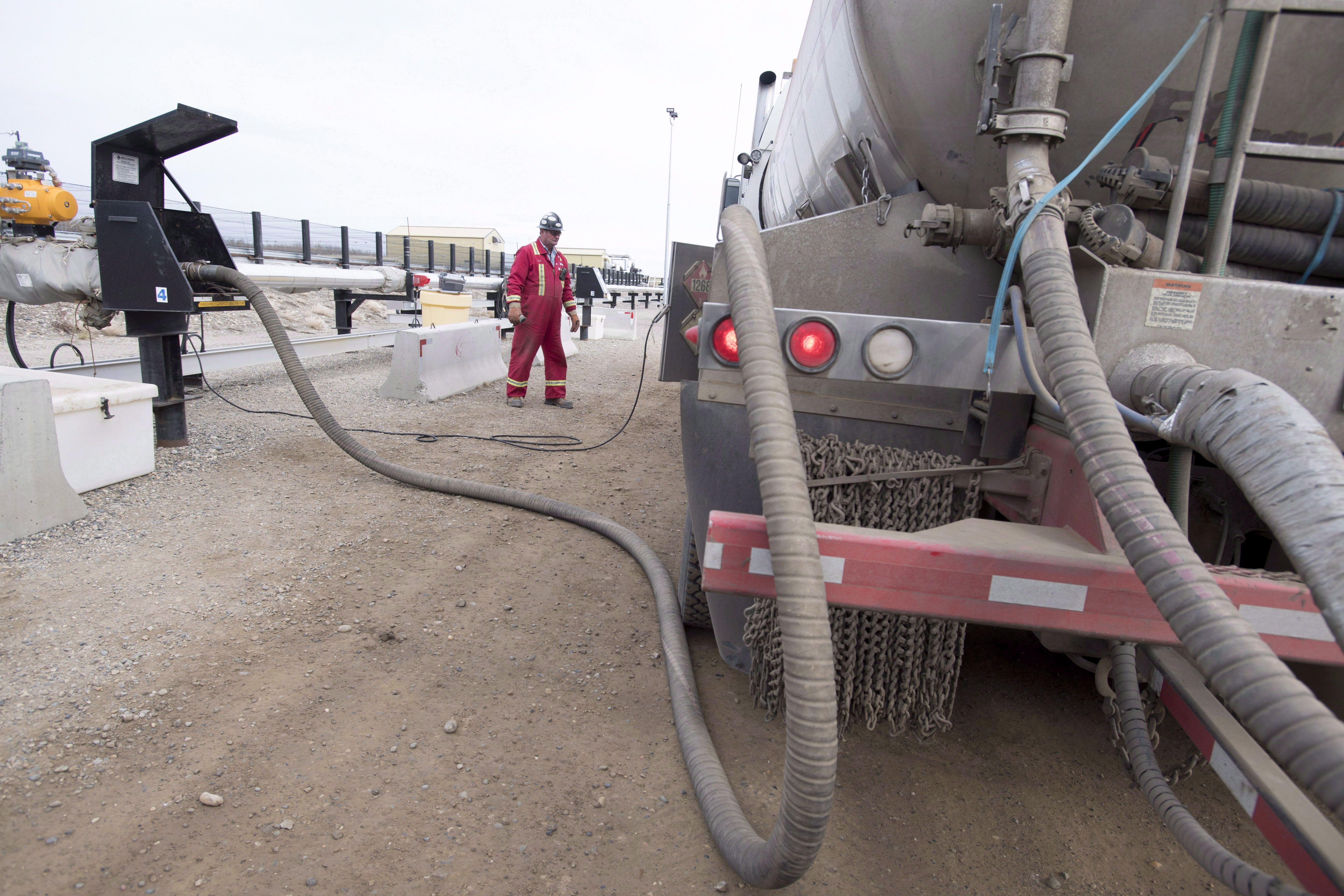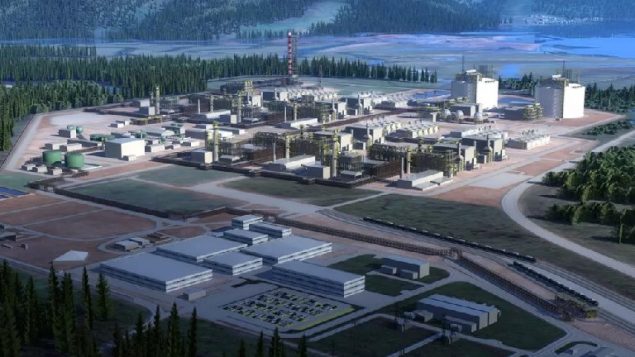Canada is a major developer of liquefied natural gas (LNG) but an international non-profit says the world boom in this industry is “on a collision course” with the goals of the Paris Agreement to limit greenhouse gas emissions. The report by the Global Energy Monitor says that projects being developed now would increase the world’s natural gas supply to 806 million tonnes over what they are now. And 35 per cent of that development is occurring in Canada.

The Global Energy Monitor says a world boom in liquefied natural gas exports is undermining efforts to tackle climate change and Canada is a major player in the industry. (Jonathan Hayward/The Canadian Press/Oct 11, 2018)
To reach the goal of limiting global warming to 1.5 C countries would have to cut natural gas by 15 per cent by 2030 and by 43 per cent by 2050, says the report.
The findings appear to be at odds with initiatives to counter global warming by transitioning from coal to natural gas. The current Canadian government has just issued new regulations to increase the carbon levy on any new LNG plans built after 2021 to discourage development. There are 18 new LNG projects proposed in Canada, according to the government’s natural resources department.
In response to the report, the Center for Liquefied Natural Gas argues there is other documentation of “the positive role that natural gas and LNG can play in the global energy transition. Contrary to the report, the U.S. LNG industry is carefully responding to the long-term needs of the global LNG market and investing in cutting-edge facilities to meet growing demand, particularly in Asia and Europe. LNG also is the ideal operational partner for renewables as it can provide reliable baseload power when the sun is not shining and wind is not blowing. In fact, increased usage of natural gas and renewables in the United States actually caused emissions from the U.S. power sector to fall to the lowest levels since the ‘90s. And globally, LNG is playing a role in reducing emissions and air pollution of nations looking to relieve energy poverty, improve population health and lifestyles and grow their economies. The 2014 DOE study, ‘Life Cycle Greenhouse Gas Perspective on Exporting Liquefied Natural Gas from the United States,’ lays out how LNG exports benefit consumers and producers at home, all while reducing emissions abroad.”
With files from Canadian Press







For reasons beyond our control, and for an undetermined period of time, our comment section is now closed. However, our social networks remain open to your contributions.